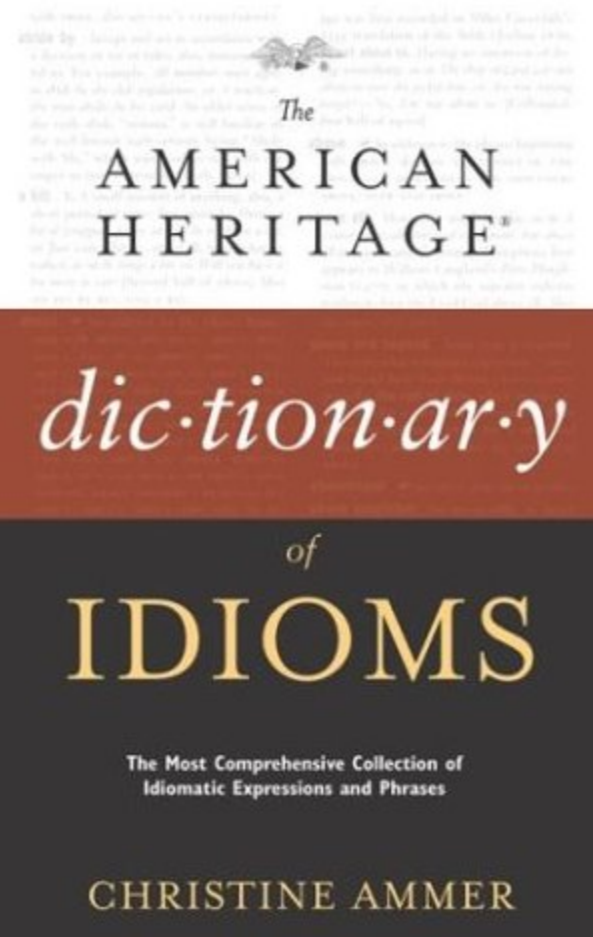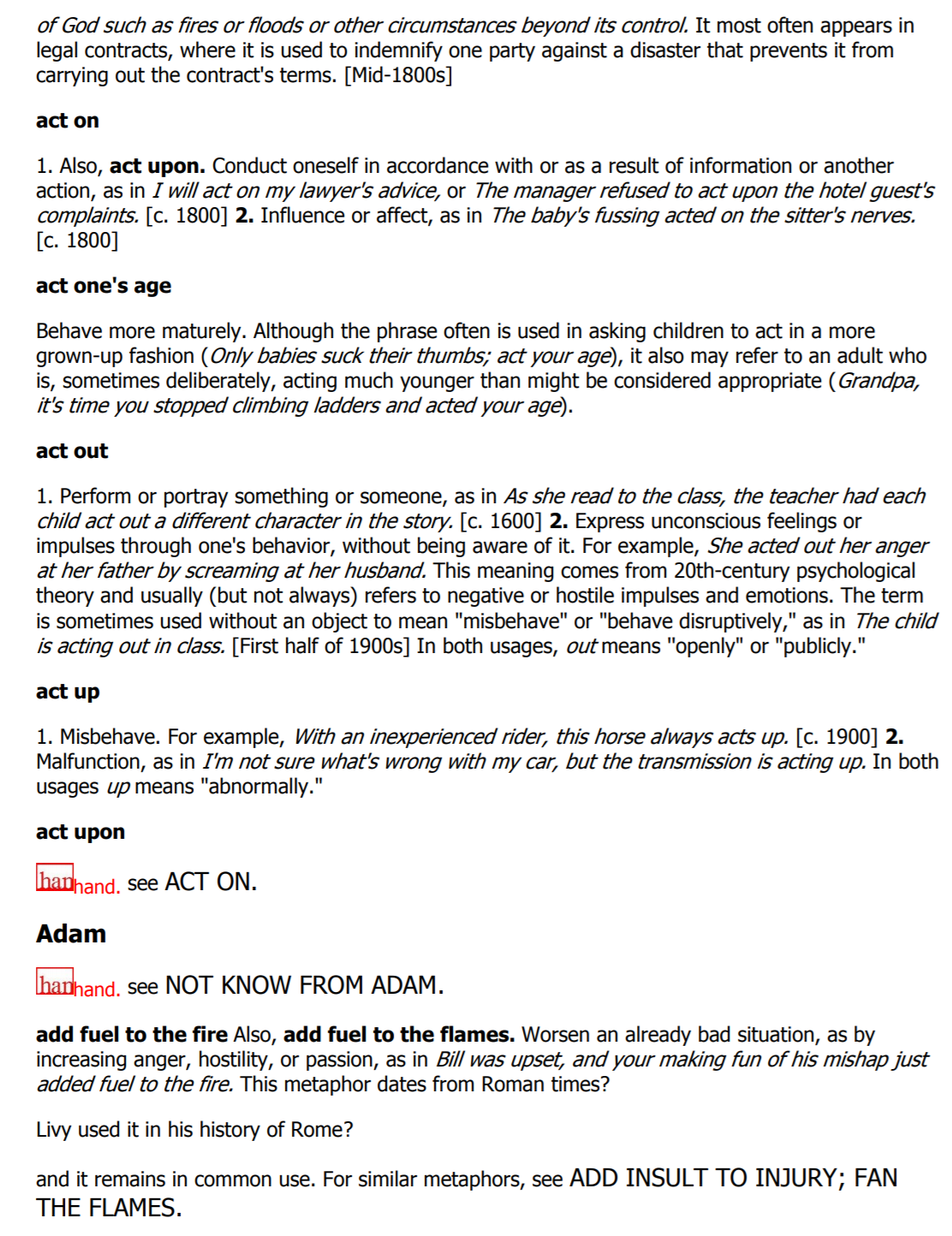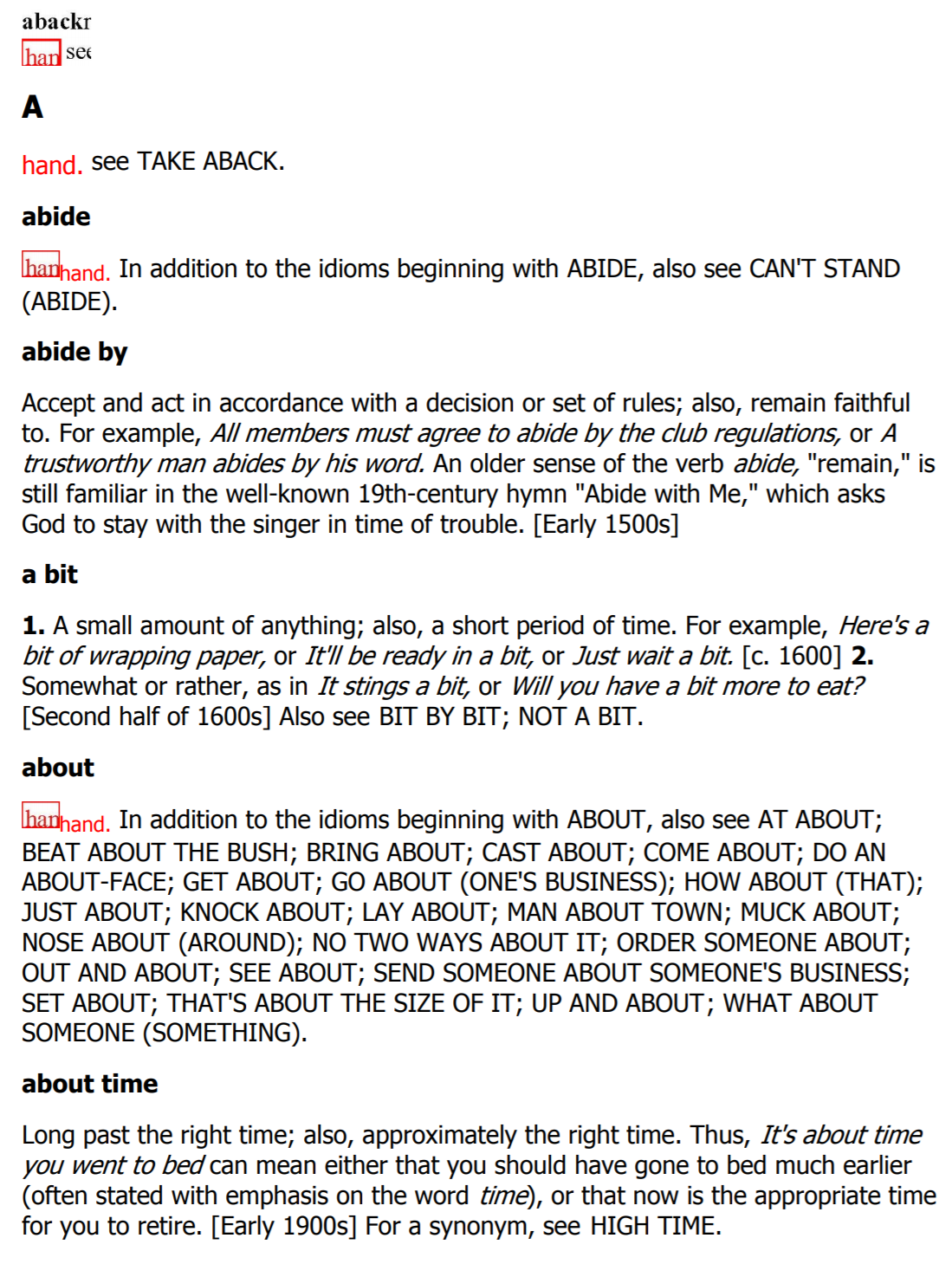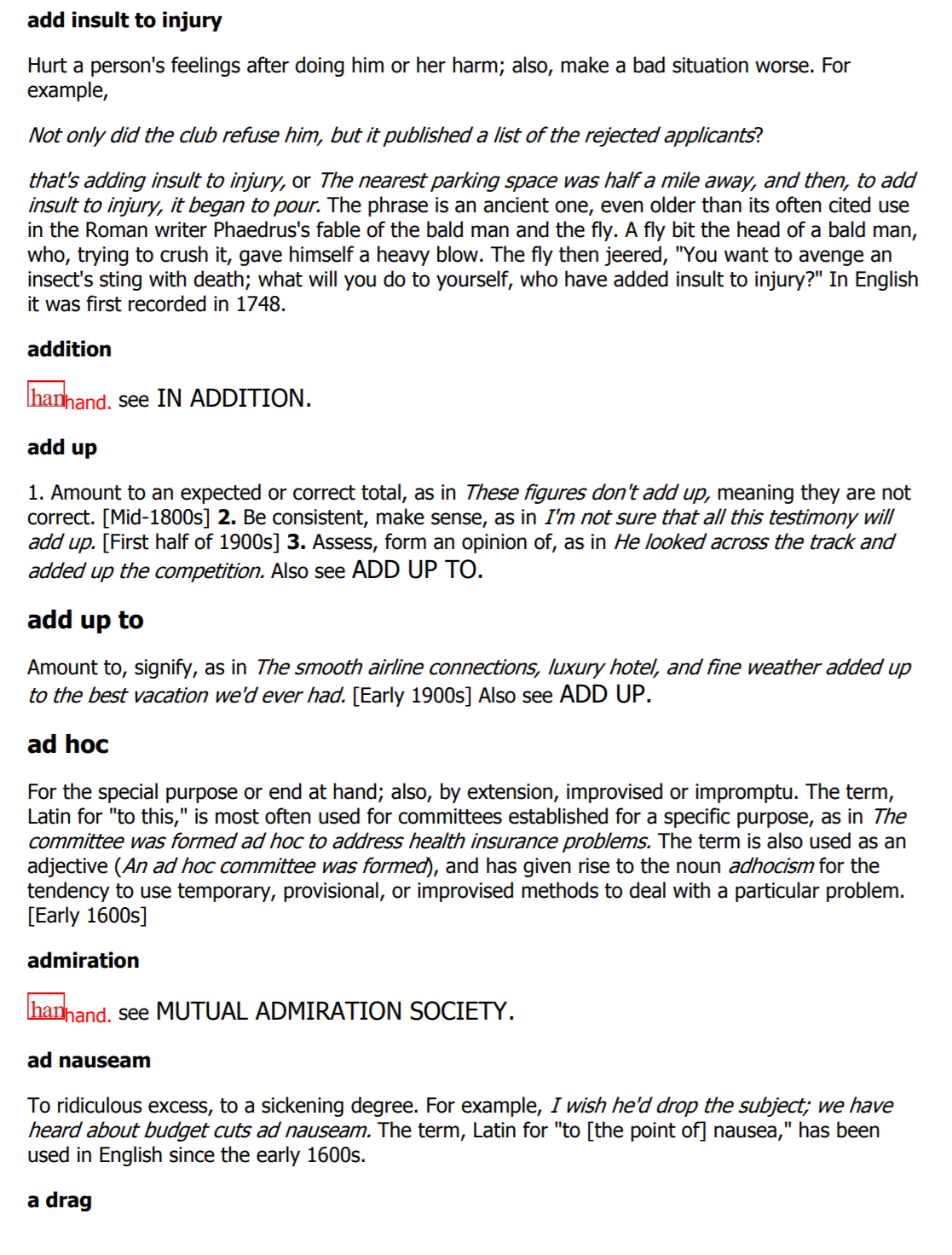This book is a comprehensive survey of the idioms currently used in American English. An idiom is a set phrase of two or more words that means something different from the literal meaning of the individual words. For instance, the phrase to change one's tune has nothing to do with music but means "to alter one's attitude." Similarly, to hit the nail on the head often has nothing to do with carpentry but means simply "to be absolutely right." Idioms are the idiosyncrasies of a language. Often defying the rules of logic, they pose great difficulties for non-native speakers. English abounds with phrases such as if worst comes to worst, far and away, and how do you do, which, if translated literally, make no sense. Indeed, the true test of an idiom is whether it changes meaning when rendered word for word in another language. In addition to idioms, this book includes common figures of speech, such as dark horse and blind as a bat; interjections and formula phrases, such as all the best and take care; emphatic redundancies whose word order cannot be reversed, such as far and wide and cease and desist; common proverbs, especially ones that often occur in abbreviated form, such as a bird in the hand; colloquialisms such as off the beam and out in left field; and slang phrases such as push the envelope. Each expression is defined and illustrated by at least one sample sentence showing how it is used in context. In most cases the literal meaning of a phrase is omitted; thus the entry hold up omits the definition "keep upright" or "support." Wherever possible I have included information regarding the expression's origin or background, along with its date of first appearance. I have given approximate dates for most idioms to allow for their probable use in speech before being written down. The ultimate origin of many idioms is unknown. Some idioms, such as by hook or crook, use familiar words in obscure ways. Some preserve words that are otherwise obsolete, such as hue in hue and cry and fell in in one fell swoop. I have tried to explain these lost origins and obscure meanings whenever research can shed light on them. The result is a dictionary that treats almost 10,000 English expressions in greater detail and depth than any other book available today. I file:///C:/Documents%20and%20Settings/Owner/My%20Documen... 3 of 5 1/29/2008 10:02 AM hope that all speakers of English will find it both useful and enjoyable. Heartfelt thanks are due to the many friends and acquaintances who have offered valuable suggestions, advice, and help, especially my husband Dean Ammer. Special mention must be made of Joseph Pickett, Senior Lexicographer, and Susan Chicoski, Associate Editor, of Houghton Mifflin Company, and of their colleagues David A. Jost and Kaethe Ellis for their invaluable expertise. I would also like to thank Jesse Sheidlower of Random House for his generous help dating some of the slang expressions. The dictionary has been vastly improved through their assistance.
For copyright holders: If the material violates your rights for any reason, please write to us at the : velesa66@gmail.com
Автор: Christine Ammer
Категория: словарь dictionary
Издатель: The American Heritage
Язык курса: Английский
Формат: PDF
Качество: Изначально компьютерное (eBook)
Кол-во страниц: 1191
ISBN: 039572774X




